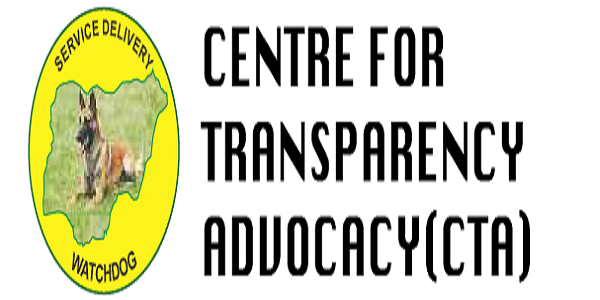Civil society organizations in the country have criticized the composition of the Palliative Consultative Committee by the Federal Government to work out palliative measures to cushion the pains from the recent fuel subsidy removal, describing it as not all-inclusive.
Following the removal of fuel subsidy, a committee, consisting of representatives of the government, organized labour and civil society organizations, was constituted to work out measures to curb the effects of the decision.
At a National dialogue in Abuja organized by the Centre for Transparency Advocacy (CTA), participants said the committee did not include representatives of some special interest groups like women and persons with disabilities.
This, they pointed out, may be difficult for the peculiar problems affecting these groups of persons to be adequately catered for in whatever palliative measures to be implemented by the government.
Noting that women and persons with disabilities were the groups worst affected by the fallout of the removal of fuel subsidies, particularly with respect to transportation, participants demanded the re-composition of the committee to protect the interest of all groups.
Apart from representatives of CSOs from the country’s six geopolitical zones, participants in the dialogue included representatives of the Inspector General of Police; Women in Extractives, Inclusive Friends
Association, League of Women Voters in Nigeria, National Women Society, Albino Foundation, Persons With Disability, the National Democratic Institute and the media.
The others included the Permanent Secretaries of the Federal Ministry of Finance and Petroleum Resources, the Executive Secretary of the Nigeria Extractive Industry Transparency Initiative (NEITI); the Chief of Party Palladium, the President of the Independent Petroleum Marketers’ Association of Nigeria (IPMAN), Civil Society Adviser of the Nigeria Open Government Partnership Secretariat, and community persons as well as other stakeholders.
The Dialogue, which provided CSOs the forum to exchange perspectives on the fuel subsidy removal and its impact on citizens and vulnerable groups, noted that the decision was ill-prepared, as there was no consultation with stakeholders who accepted fuel subsidy as a policy that must go.
With NEITI revealing that the government spent about N13.6trn. in subsidy payments between 2005 and 2021, as well as over $19bn on repairing the country’s four refineries in the past eight years without the expected results, participants observed that the expenditure was equal to the nation’s combined budgets for education, health and security in the last five years.
They called for the probe of allegations of corruption and fraud pervading the subsidy payment regime and refinery rehabilitation, noting that there was no genuine demonstration of the sacrifice demanded from citizens by the government and the political elite who still go about with long convoys of official vehicles.
“There is no clarity on the post-subsidy fuel pricing computation, savings and regulation as well as the non-inclusive approach in the proposition of government policies and interventions and constitution of its negotiation committee and similar platforms. Also, there is no holistic implementation plan and inclusive framework for the above propositions,” participants noted.
On the decision to pay N8,000 to some households in the country, participants described the decision as cosmetic and unsustainable, considering the high cost of goods and services across the nation at this time.
Participants noted the astronomical cost of living with a knock-on effect on prices of goods and services, including transportation, food inflation, and the high cost of business operations.
To cushion the negative impacts of the policy, participants proffered short, medium and long-term solutions for consideration, including the need to urgently cut down on multiple taxations, especially in informal places like markets.
The government, they said, would need to strengthen the public transport system across the country, with the immediate rollout of public mass transport buses to cushion the direct impact and distribution of transport vouchers.
Other solutions include increased investment in ICT infrastructure in Nigeria to strengthen and deepen internet penetration and cost of data; strengthening broadband bases to cover more grounds; reduction in custom duty on solar panels and other alternative energy sources, and establishment of price stabilization mechanism to reduce the cost of food and other essentials.
Also, participants called for decentralization of administrative offices and commercial hubs to move people across cities to suburbs and satellite towns, increased investment in liquefied petroleum gas (LPG) and compressed natural gas (CNG) as alternative automotive fuels; repair of at least one out of the four refineries in the next one year.
Some general recommendations include speedy construction of new and rehabilitation of existing railways within cities and inter-city rail lines in big cities like Abuja, Lagos, Kano, Port Harcourt etc. to ease movement, while state and local governments should provide buses in remote areas to help convey farmers and their produce from their farms to the market to reduce wastage.
Besides, they urged the government to provide free or subsidized transit buses to convey people along major city routes across the country and make concrete arrangements for free transportation for the workers, students, nursing mothers, and elderly in critical sectors like health and education.



